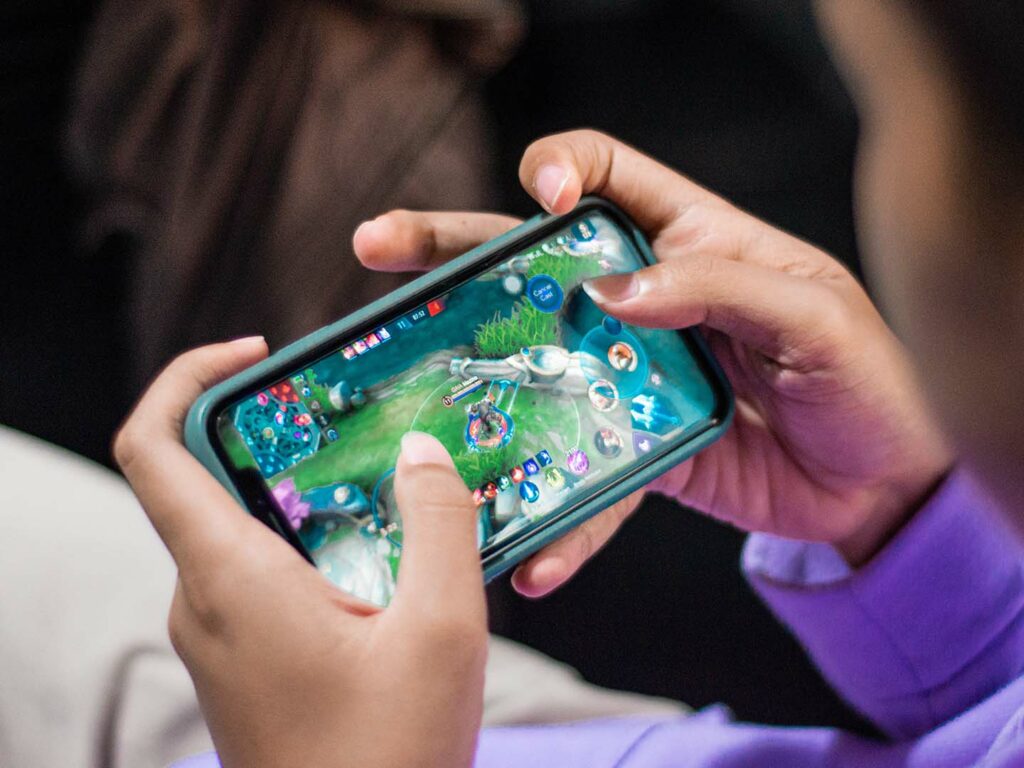21 May 2025
Scaling mobile game CX: It doesn’t have to be hard mode!
Words by Erin Johnson
Reading time 4 min

Words by Erin Johnson
Reading time 4 min

Game launched? Check.
Player hype? Check.
Champagne? Crack that bottle, you deserve it!
But while it bubbles on your tongue, let me ask you this: Have you considered how to respond to players who need assistance or want to provide feedback? And when your player base grows (and let’s be honest it will – your game is awesome), what will you do when those interactions start exploding in languages you do not speak? How will you manage the volume of requests coming in, but still provide the best possible user experience to your fans?

Mobile gaming is a hit-driven business that often leaves studios with less than adequate resources until the game proves it will thrive and survive. But this method, while practical for finance-driven businesses, also presents a real Catch-22 situation: sudden hits result in exponential support volume, but lack of proper handling can drive player dissatisfaction. So what’s a studio to do?
Let’s assume you already have the basics in place to handle player feedback. Clearing this boss has taken a true maestro of a Player Experience (PX) Lead, but they have managed to deliver a…
GG, right? I mean REALLY GG from your PX Lead! Having those 7 items in place is no small feat. The problem is that all of these measures by themselves can’t run your global operations. Yes, they help manage volume, especially in eliminating volume generators, but when it comes to the requests that matter, there is no substitute for human interaction.
This is where many studios start LFG, either by recruiting PX agents or by grouping up with a BPO, in order to balance their party: tools and technology working harmoniously with a human factor and native knowledge. While it may seem that this quest takes a hefty chunk out of the Department’s treasury, here’s why it’s totally worth it.
With more than 2.4 Billion people playing mobile games in 2019, the mobile gamer audience is everyone and everywhere. While mobile gaming has gone mainstream, not every player fits the “traditional” label of gamer. For PX teams, that means being prepared for any situation, including contacts with newbies and veterans alike. The faster and easier you can explain something, the sooner your player can get back to gaming.
Speed is essential, but there is no substitute for that human touch; there are incredible benefits when a support agent can immediately relate to a fan of the game. Mobile gamers still want that high-touch service. Fast, high-quality and personalized: your PX Triforce.
Did you know that 50-80% of global mobile games market revenue is generated by only ten countries, yet it requires games being localized in 15 different languages? As not every gamer speaks English, it obviously creates a clear need for multilingual localization and support.
In order to connect with global gamers, gaming publishers need to not just localize but also culturalize. With this principle already widely adapted in User Acquisition and Influencer Marketing, it sets the expectation of true localized support. When talking about Player Experience teams, multilingual agents can often do the job and save on cost. However, the reality is that they can fall short in the culturalized aspect if they are only near-native speakers. Native speakers will notice this easily; players even more so as they tend to adopt their own local lingo. Failure to deliver on that culturized native language support will damage the local user experience.
So how do you scale your team to meet with user expectations? Unless you’re lucky enough to be an established developer with multiple hits, you won’t have the resources to set up numerous local PX teams. Enter BPOs: the Tails to your Sonic!
Yet, most BPOs are very centralized, which means that the number of supported languages they have to offer are often tied to a geographic region. As with any great RTS, availability of resources will always be a limitation.
But does it have to be? Maybe the cake is a lie, but is it unreasonable to want to have your cake and eat it too?
In all seriousness, no it absolutely is not unreasonable. In fact, you should never be faced with the possibility of altering the vision you have for your game and players. It’s integral to consider teaming up with a BPO that can provide local agents capable of the type of outstanding communication you want for your player base.
At 5CA we’ve been leaders in the WFH model for our PX agents for over a decade. Using a model with this innate flexibility, married with innovative tech and visionary leadership, we can ensure our partners get true culturalized support – by gamers, for gamers.
Interested in more? Check out our solutions!